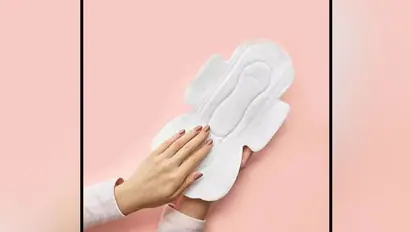Menstrual Cramps: When They Are Not Normal

Synopsis
The period pain from your menstrual cramps might not be normal – and not something you should ignore any longer.
It happens every month, and though you are used to it, you wish there was a solution to it. We are alluding to period cramps. They are painful and present every month when you get your period. By now, you have probably made your peace with them, telling yourself that they are a nuisance you must endure with your menstrual period. But the period pain from your menstrual cramps might not be normal – and not something you should ignore any longer.
What are menstrual cramps?
The uterus contracts and releases itself to expel the menstrual ‘debris’ such as blood, cervical mucus, endometrial tissue and other secretions required in case conception occurs. In the event that there is no conception, the uterus must discard all the material needed to create a foetus. It does this by contracting at regular intervals – in some women, these uterine contractions are felt quite acutely. This phenomenon is known as menstrual cramps.
They may cause severe pain, to the extent that one may need to rest at home or sleep off the pain. The pain is most severe on heavy flow days, and goes away thereafter.
Signs that your period cramps are not normal
Though almost every woman experiences some discomfort during the menstrual cycle, not every women is laid low by debilitating menstrual cramps. So how can you tell if the period pain you experience every month is normal, or if it needs a doctor’s attention? Pay attention to the following signs:
· You are forced to take leave from study or work, to rest.
Period cramps come and go, but if they are severe enough that they disturb your normal routine and force you to take to your bed, then they are certainly not normal. Debilitating menstrual cramps are not rare, but they are definitely not normal. Menstruation should not hamper your quality of life, and if you regularly pop painkillers to allay your cramps, you need to schedule a visit to your doctor pronto.
· Painkillers don’t work on your period cramps.
While your doctor might prescribe a mild painkiller for period pain, you might be tempted to take generic pain killing medication in the form of OTC drugs. Don’t do this – you might end up taking more than the required dosage, and any unsupervised ingestion of drugs is not recommended. But if you do take painkillers – whether doctor-recommended or not – and find that they have hardly any effect on the pain, then something’s wrong and testing is required.
· The cramps are present on all period days.
Menstrual cramps normally occur on the first and/or second day of menstruation. If you have cramps on all four or five days of your period, it’s not normal at all. In fact, it could be signs of uterine fibroids or endometriosis, which might not be apparent till the required tests are conducted to detect them.
· The cramps bring other symptoms, too.
You should not feel more than some randomly occurring discomfort in the uterine area during heavy flow days. But if your menstrual cramps are accompanied by fever, nausea, abnormal vaginal discharge even after the period is over (and cramps are present throughout the period) and dizziness, you must schedule an appointment with your doctor at once.
What else you can do to be comfortable
Most women go to bed with hot water bottles for cramp comfort. The higher temperature alleviates the pain to a large extent. However, hot water bottles are a bit messy to use. There is always the risk of skin burns both while filling the bottle with hot water and while applying the bottle on bare skin. You could use electrically-heated pads on the painful area, but these might also cause skin burns.
We recommend using a heating patch – the patch is simply placed on the lower abdomen area to allow it to heat using body warmth. It can be used for up to 8 hours at a time, so it assures you of a good night’s sleep despite period cramps.
On the days when you have non-period vaginal discharge, we recommend you use panty liners. They keep you feeling fresh and comfortable even with heavy discharge, and protect your underwear from stains and moisture. Abnormal heavy discharge may require sanitary pads.
It is always a good idea to consult a doctor if you are worried about your menstrual health, and intense period pain in particular. Trust your intuition – if you are worried, there is probably a good reason for it – and get all your tests done while following a healthy lifestyle and getting adequate amounts of rest.
Disclaimer: This is a featured content